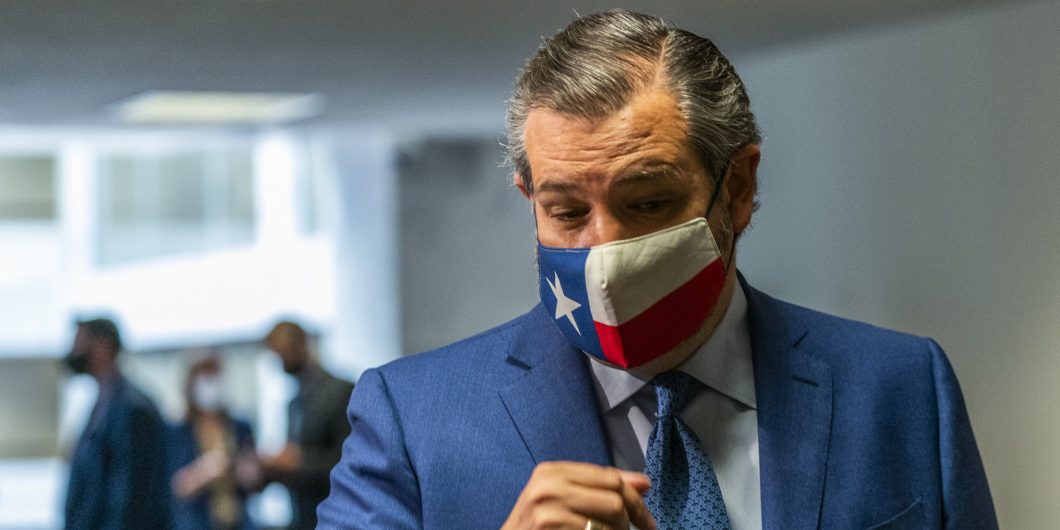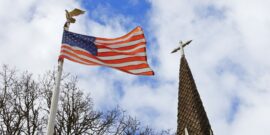The Embarrassing Eleven
Several prominent directors of Samurai films and Westerns in the 1950s and 60s shared a mutual admiration and openly made their art with direct reference to one another. In Akira Kurosawa’s brilliant movie Yojimbo, for instance, a masterless samurai played by the sublime Toshiro Mifune is standing at a crossroads and throws a stick up in the air to “decide” which direction to go. The scene is a direct reference to the John Ford film Young Mr. Lincoln, in which Ford’s version of the American president does the exact same thing. The Western remake of Kurosawa’s classic The Seven Samurai became The Magnificent Seven. In fact, the mutual “admiration” between purveyors of the two genres became so intimate that Kurosawa was forced to sue Sergio Leone over the movie A Fistful of Dollars, which was clearly a plagiarized version of Yojimbo by Leone.
Today America’s political leadership has clearly decided it wants to pay a similar kind of tribute to the despotic leaders of alleged democracies in the developing world that lack any respect for institutional legitimacy, rule of law, and common decency. Evo Morales, Nicolás Maduro, and Cristina Kirchner would be proud of the American political class these days, and would probably like some credit for serving as trendsetters. It’s difficult not to trip over instances of complete disregard for the Constitution, rule of law, consistency, or moral leadership among American politicians at the moment, but in the spirit of samurai films I wanted to begin by discussing President Trump and the “Embarrassing Eleven.”
Over this past weekend, eleven US Senators, with no factual basis for their claims of voter fraud, decided they will vote to challenge the Electoral College votes from several states on January 6. Following the example of this group of samurai, their leader, Mr. Trump, was recorded asking the Georgia Secretary of State to “recalculate” the state’s popular vote, saying “I just want to find 11,780 votes,” enough to flip the state’s electoral vote. So much for conservative belief in the importance of states and the Constitution.
Lest one think we need to blame only the president and his supporters here, it’s important to remember that many politicians on both sides of the aisle have spent much of the year abusing their authority and acting like petty dictators. Whether it’s Speaker Pelosi and Mayor Lori Lightfoot putting their hair styles over consistency, Governors Andrew Cuomo and J.B. Pritzker telling folks to forgo holiday vacations and meals but getting caught planning private trips and large family meals, Governor Gavin Newsom blatantly violating his own orders regarding indoor dining with a group from the California Medical Association to celebrate a friend’s birthday, or mayors closing schools throughout the country without any regard for the scientific evidence showing negligible risks to teachers and administrators, neither party has showered itself in glory during this past year. It is in fact nearly impossible to find decent political leadership in the US at the moment.
My colleague and editor of this space, Richard Reinsch, wrote a very prescient piece prior to the lockdowns in which he compared the Covid pandemic to a war effort, and hoped we would pull together to fight through it. By and large, the public (you, me, and everybody except America’s political leadership) took that charge seriously. People have stayed home to help bend the curve. Mask wearing is at or above levels in other countries lauded by our leaders as being “better” examples. We have forgone holiday gatherings and struggled to teach our children while also working from home and avoiding normal social lives. The costs to us have been real and difficult, while politicians have lacked the moral standing and empathy to effectively maintain our trust.
No matter what one thinks of the New Deal, at the very least FDR understood the magnitude of the crisis faced by the Second World War and did not spend most of that war attacking the press, showering himself with shallow praise, or showing a complete lack of empathy for the American people. Congressional and state leaders of both parties didn’t go around arguing for rationing of fuel and food for the war effort while blatantly defying those rules and lecturing Americans they weren’t sacrificing enough.
Trump and his allies are claiming that the entire system is so corrupt that when rules and institutions do not produce the desired results, they should be rejected. What’s more, they have the political confidence to make such claims.
Publius famously wrote, “if men were angels, no government would be necessary.” People are imperfect, and we need government to mitigate the effects of those imperfections. Unfortunately, that phrase has occasionally been translated into “politicians are devils so we need institutions.” But that’s not what Publius or the Founders meant. People—normal people—will not become angels once they assume political office. Representative government relies on institutions to curb normal human behavior and divide power among different offices, thus preventing the concentration of power and possible abuses that might emerge.
But our current political class is made up not of normal humans but of extreme narcissists. The US has survived Watergate, the Clinton scandal, the Teapot Dome scandal, and the Grant Administration, just to name a few. Americans are hardly naive when it comes to politics. But the performance of this generation in leading us through a period of crisis has been an abject failure.
And this failure has led us to a much more profound problem: cratering levels of social trust in America’s leaders and among the public at large. Why have the Embarrassing Eleven chosen to follow this rogue leader? Why do millions of Americans believe without any tangible evidence that this election was stolen from Mr. Trump? What does it say about the health of the republic?
Though he lost, Mr. Trump received more than 70 million votes in this past election. And those people supported him in the midst of a devastating global pandemic and despite a gigantic and noticeable bias among the chattering class, mainstream media, and public health community. No one can simply dismiss this support as ill-informed or the result of some twisted view of Marxist false consciousness. It doesn’t take a genius psychologist to understand that individuals have prior beliefs and those beliefs help us filter the way we process information.
But now we face a tremendous crisis in establishing the basic “facts” that frame our political debate. Did Mr. Trump win or lose? This is now a matter of discussion among millions of Americans. This isn’t taking place in Argentina or Venezuela, but here—and in Georgia of all places where Mr. Trump’s party controls the mechanisms of state government. Judges—many of whom were appointed by Mr. Trump himself—have rejected the claims of voter fraud and manipulation made by his attorneys. It’s reasonable to note that these claims have also been rejected by judges appointed by other presidents and some of the alleged vote manipulations are said to have occurred in other states controlled by Democrats, but the breadth of the conspiracy and fraud being asserted is well beyond what one would expect were the health of the nation strong.
The underlying assumption of the Embarrassing Eleven is terrifying. Essentially, they and Mr. Trump are claiming that the entire system is so corrupt that when rules and institutions do not produce the desired results, they should be rejected. What’s more, they have the political confidence to make those claims. While pundits and the media berate Mr. Trump for his insistence that he won (and rightfully so), they are missing the bigger point: Enough Americans support these claims to encourage the Embarrassing Eleven and their rogue leader to push these arguments that American democracy is so riddled with corruption that it cannot be trusted. The division between those who believe the president and those who do not has become so vast as to make fact-based dialogue impossible. The real threat to our democracy is not Mr. Trump alone, as many in the press and on the left would like us to believe.
No, we’ll see the real threat only by understanding how we got here. How did we get to a place where millions of Americans are openly contemptuous of their entire set of political institutions? How did so many of us come to believe that we cannot communicate with and understand those who see the world differently? These are the problems that caused many to question the entire project of self-government in the 18th century, and we would be well served to go back and examine the early defenders of liberalism to understand why we have to listen to the grievances and views of Mr. Trump’s supporters, even if we firmly believe those positions are wrong and that he lost the election. Listening is not accepting, it is the art of citizenship and a requirement for democracy.
Were this a spaghetti Western or samurai film, we could count on a master filmmaker like Ford or Kurosawa providing valuable lessons with their storytelling magic and helping us see the faults in the human condition and the limits of our world. Much like Publius’ reminder about the imperfect nature of humanity, a recurrent theme for both filmmakers was the inherent skepticism we should bring to the political world. Whether it was Kurosawa’s buffoonish mayor in Yojimbo or John Ford’s admonition to “print the legend” from The Man Who Shot Liberty Valance, neither artist put undue faith in the people who staffed our political offices. We would be well served by remembering that point. Our political class won’t save us. We aren’t in the middle of a movie. We have to fix this, and it begins by reaffirming our faith in the institutions that have brought us this far and rejecting attempts by any leader to divide us. The election is over—it’s time to rebuild. How we do that is yet to be determined. But deciding to do otherwise? That way madness lies.

